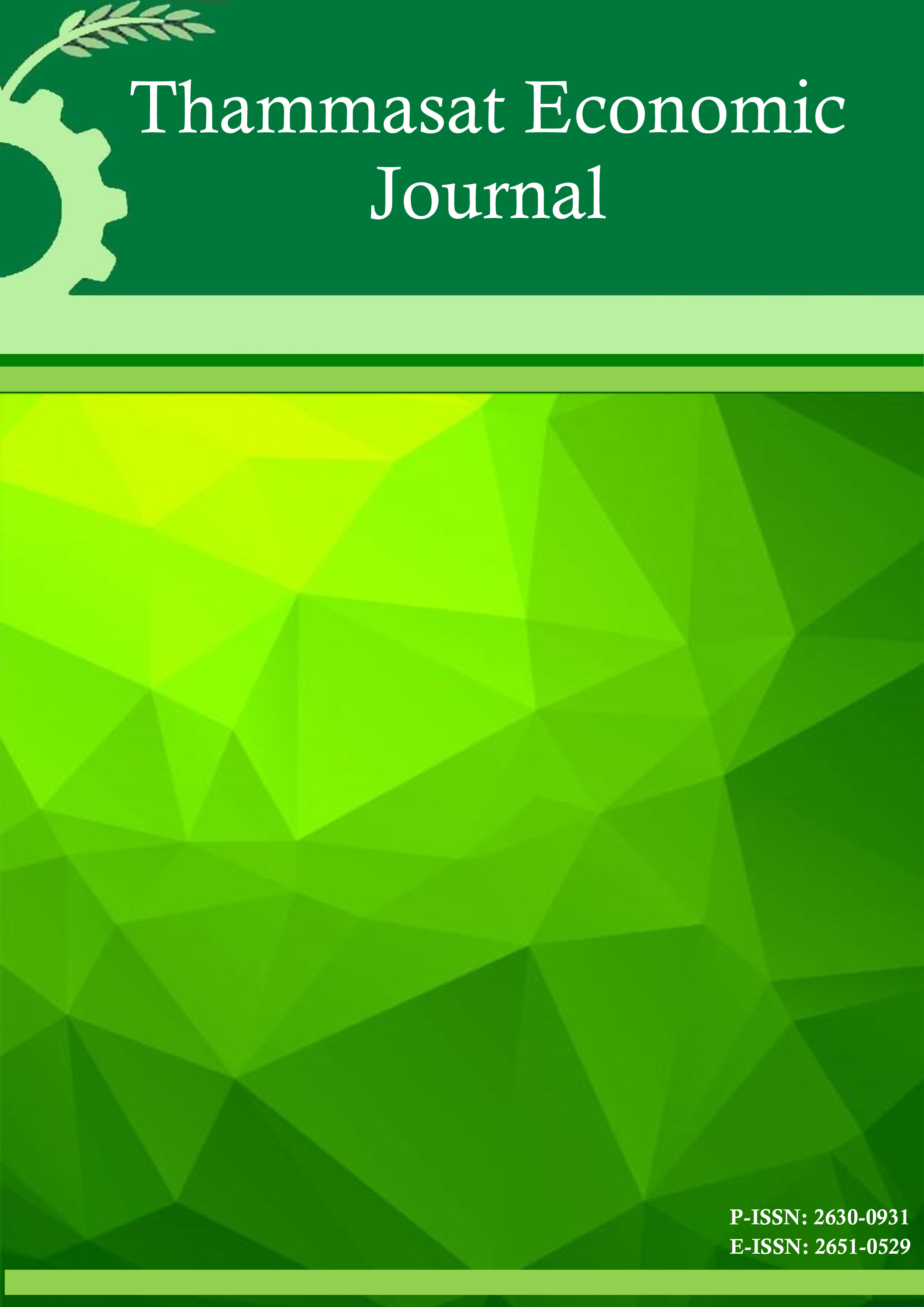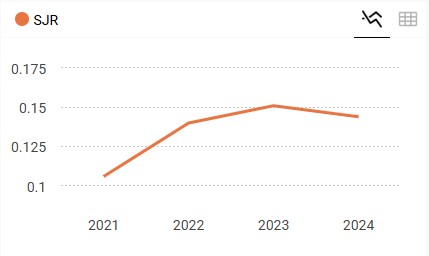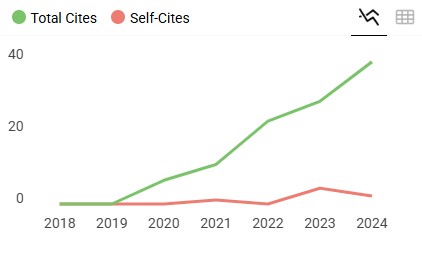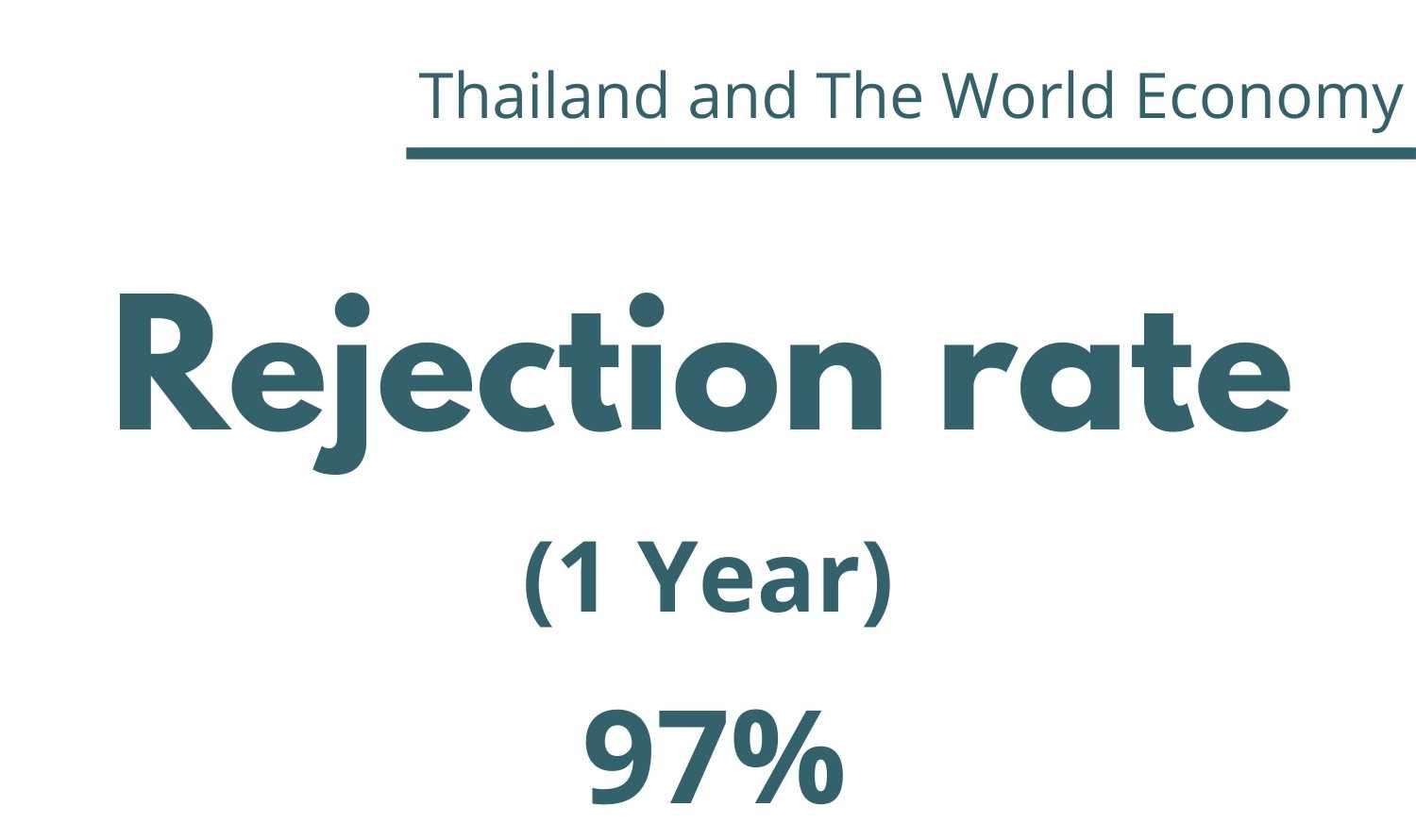เศรษฐศาสตร์สถาบันแบบใหม่
แนวการวิเคราะห์ข้ามพ้นกระแสหลัก?
Abstract
ในช่วงสองทศวรรษที่ผ่านมา เราได้เห็นการเปลี่ยนแปลงและพัฒนาการของทฤษฎีเศรษฐศาสตร์อย่างต่อเนื่อง แม้ว่าทฤษฎีเศรษฐศาสตร์กระแสหลักหรือที่รู้จักกันดีว่าเป็นเศรษฐศาสตร์นีโอคลาสิกจะยังครอบงำวงการวิชาการเศรษฐศาสตร์ในระดับสากลและระดับประเทศอยู่ แต่มีแนวโน้มของการถูกต่อต้านและมีข้อเสนอแนะในทางที่สร้างสรรค์ว่า เราควรจะหันมาทบทวนทฤษฎีเศรษฐศาสตร์นีโอคลาสิก ในแง่ความแข็งกระด้างของข้อสมมุติและควรประเมินใหม่ว่า องค์ความรู้ทั้งชุดของทฤษฎีเศรษฐศาสตร์นีโอคลาสิกมีจุดอ่อนและจุดแข็งอย่างไรในการอธิบายโลกแห่งความเป็นจริง โดยเฉพาะบทบาทของสถาบัน (Institutions) ซึ่งเศรษฐศาสตร์นีโอคลาสิกมิได้ให้ความสำคัญเท่าที่ควรหรือให้ความสำคัญก็ไม่มากเท่าที่ควร เพราะมักถือว่าสถาบันเป็นปัจจัยภายนอก (Exogenous variable) มาโดยตลอดที่ยากต่อการทำความเข้าใจดังนั้นจึงมักถูกสมมติให้เป็นตัวแปรภายนอกที่มีลักษณะคงที่ แต่นักเศรษฐศาสตร์จำนวนมากเริ่มตระหนักว่า การสมมติอย่างแข็งกระด้างเช่นนี้น่าจะเป็นการลดความแม่นยำและความถูกต้องของทฤษฎี ในแง่ที่ว่า สถาบันย่อมมีบทบาทอย่างสำคัญต่อการกำหนดพฤติกรรมของมนุษย์ในสังคมไม่ทางใดก็ทางหนึ่ง หรือในทางกลับกัน มนุษย์ก็พยายามเปลี่ยนแปลงสถาบันเพื่อกำกับพฤติกรรมของมนุษย์มิให้ฉกฉวยโอกาสจากผู้อื่น ด้วยเหตุนี้ เศรษฐศาสตร์สถาบันแบบใหม่จึงนำเอาสถาบันมาเป็นตัวแปรภายในที่จำต้องอธิบายผ่านกรอบของแบบจำลองทางเศรษฐศาสตร์ แทนที่จะสมมติให้เป็นปัจจัยภายนอกแบบเศรษฐศาสตร์นิโอคลาสิก ทฤษฎีเศรษฐศาสตร์สถาบันแบบใหม่จึงนับเนื่องว่าเป็นทฤษฎีที่กำลังพัฒนาและเปลี่ยนแปลงอยู่ตลอดเวลา อย่างไรก็ตาม จุดเด่นของทฤษฎีใหม่นี้ก็คือ นอกเหนือจากการประยุกต์ทฤษฎีเศรษฐศาสตร์กระแสหลักที่เป็นการวิเคราะห์แบบเป็นส่วนเพิ่ม ในแง่ของเครื่องมือการวิเคราะห์ หากแต่เป็นการขยายพรมแดนความรู้ให้เข้าใกล้ความจริงมากขึ้น โดยมีจุดศูนย์กลางที่ “สถาบัน” ซึ่งเป็นจุดอ่อนที่สุดในเศรษฐศาสตร์นิโอคลาสิก เพราะเหตุว่า ข้อสมมติของเศรษฐศาสตร์กระแสหลักหรือนิโอคลาสิกที่มองโลกว่า ไม่มีความขัดแย้งดำรงอยู่(frictionless) ที่มีแต่การแข่งขันและ/หรือการผูกขาด โดยที่มิได้คำนึงถึงรูปแบบและพัฒนาการของสถาบันในแต่ละสังคมนั้น นับว่าเป็นข้อสมมติที่ห่างไกลจากโลกแห่งความเป็นจริง โดยเฉพาะโลกที่สมมติให้ต้นทุนธุรกรรม (Transaction costs) ที่เป็นศูนย์นั้น ถือเป็นโลกในอุดมคติมากกว่าโลก
มนุษย์ หรือ การสมมติว่า มนุษย์ที่เป็นปัจเจกชนมีความสมเหตุสมผลเสมอ (Perfect individual
rationality) อยู่เป็นเนื่องนิจในสำนักเศรษฐศาสตร์กระแสหลักก็เป็นข้อสมมติที่ไม่สอดคล้องกับ
โลกแห่งความจริง เหนือสิ่งอื่นใดก็คือในทุกสังคมของมนุษย์นั้น จำเป็นต้องมีสถาบันที่คอยกำกับ
หรือควบคุมการกระทำของมนุษย์ ซึ่งเกี่ยวกันโดยตรงกับระบบกรรมสิทธิ์และระบบต้นทุน
ธุรกรรมนั่นเอง
References
2. Allen, Douglas W., 1998. Property rights, transaction costs and Coase: one more time. In: Coasean economics: law and economics and the new institutional economics. Recent economic thought series. Boston: Kluwer Academic, pp. 105-18.
3. Alston, Lee J., Libecap, Gary D., and Schneider, Robert, 1995. The determinants and impact of property rights: land titles on the Brazilian frontier. University of Arizona Economics Working Paper, Vol. 95, No. 3, November, p. 35.
4. Alston, Lee J., Libecap, Gary D., and Mueller, Bernardo., 1997. Violence and the development of property rights to land in the Brazilian Amazon. In: The frontiers of the new institutional economics. San Diego: Harcourt Brace Academic Press, pp. 145-63.
5. Alt, James E., and Shepsle, Kenneth A., 1998. Rules, restrictions, constraints: structure and process in the new institutional economics. Journal of Institutional and Theoretical Economics, Vol. 154, No. 4, December, pp. 735-43.
6. Bardhan, Pranab, 1996. The nature of institutional impediments to economic development. Mimeograph, University of California at Berkeley.
7. Bates, Robert H., and Shepsle, Kenneth A., 1997. Intertemporal institutions. In: The frontiers of the new institutional economics. San Diego: Harcourt Brace Academic Press, pp. 197-211.
8. Blum, Ulrich, and Dudley, Leonard, 2000. Blood, sweat and tears: the rise and decline of the East German Economy 1949-1988. Jahrbucher fur Nationalokonomie and Statistik, Vol. 220, No. 4, July, pp. 438-52.
9. Boettke, Peter J., 1998. Coase, communism and the "black box" of Soviet-type economies. In: Coasean economics: law and economics and the new institutional economics. Recent economic thought series. Boston: Kluwer Academic, pp. 193-207.
10. Brousseau, Eric, and Quelin, Bertrand, 1996. Asset specificity and organizational arrangements: the case of the new telecommunications services market. Industrial and Corporate Change, Vol. 5, No. 4, pp. 1205-30.
11. Brousseau, Eric, 1999. Neo-Institutionisme, prix et normativite (New -Institutional Economics, price and normativity). Economies-et-Societes, Vol. 33, No. 4, April, pp. 5-30.
12. Castle, Emery N., 1999. Natural resource and environmental economics: a retrospective view. Review of Agricultural Economics, Vol. 21, No. 2, Fall-Winter, pp. 288-304.
13. Chikan, Attila, 2001. Integration of production and logistics: in principle, in practice and in education. International Journal of Production Economics, Vol. 69, No. 2, Jan, pp. 129-40.
14. Clague, Christopher, 1997. Institutions and economic development: growth and governance in less developed and post-socialist countries. Baltimore and London: Johns Hopkins University Press.
15. Arias, Xose Carlos, 1999. Reformas financieras en America Latina 1990-1998. Desarrollo Economico, Vol. 39, No. 155, Oct-Dec, pp. 361-84.
16. Arthur, Brain W., 1997. Beyond rational expectations: indeterminacy in economic and financial markets. In: The frontiers of the new institutional economics. San Diego: Harcourt Brace Academic Press, pp. 291-304.
17. Baland, Jean Marie, and Platteau, Jean Philippe, 1998. Division of the commons: a partial assessment of the New institutional economics of land rights. American Journal of Agricultural Economics, Vol. 80, No. 3, August, pp. 644-50.
18. Clague, Christopher, 1997. The New institutional economics and economic development. In: Institutions and economic development: growth and governance in less developed and postsocialist countries. Baltimore and London: Johns Hopkins University Press, pp.13-36.
19. Clark, Andy, 1997. Economic reason: the interplay of individual learning and external structure. In: The frontiers of the new institutional economics. San Diego: Harcourt Brace Academic Press, pp. 269-90.
20. Coase, Ronald, 1998. The new institutional economics. American Economic Review, Vol. 88, No. 2, May, pp. 72-4.
21. Cory, Gerald A., 1999. The reciprocal modular brain in economics and politics: shaping the rational and moral basis of organization, exchange and choice. London: Kluwer Academic /Plenum.
22. David, Paul A., and Sanderson, Warren C., 1997. Making use of treacherous advice cognitive progress, Bayesian adaptation and the tenacity of unreliable knowledge. In: The frontiers of the new institutional economics. San Diego: Harcourt Brace Academic Press, pp. 305-66.
23. Dow, Gregory K., 1997. The new institutional economics and employment regulation: government regulation of the employment relationship. IRRA 15th anniversary volume. Madison: Industrial Relations Research Association, Cornell University Press, pp. 57-90.
24. Dow, Gregory K., 1998. Review of the economic theory of socialism and the labour-managed firm: markets, socialism and labour management. Journal of Economic Literature, Vol. 36, No. 2, June, pp. 992-4.
25. Drobak, John N., 1997. Credible commitment in the United States: substantive and structural limits on the avoidance of public debt. In: The frontiers of the new institutional economics. San Diego: Harcourt Brace Academic Press, pp. 247-66.
26. Drobak, John N., and Nye, John V.C., 1997. The frontiers of the new institutional economics. In: The frontiers of the new institutional economics. (San Diego: Harcourt Brace Academic Press.
27. Duguid, Paul, and da Silva Lopes, Teresa, 1999. Ambiguous company: institutions and organizations in the port wine trade 1814-1834. Scandinavian Economic History Review, Vol. 47, No. 1, pp. 84-102.
28. Duxbury, Neil, 1998. Ronald's way . In: Coasean economics: law and economics and the new institutional economics. Recent economic thought series. Boston: Kluwer Academic, pp. 185-92.
29. Edighoffer, Jean Rene, 1999. Controle de gestion et Economie Institutionnelle: (Management control and New institutional economics. Economies-et-Societes, Vol. 33, No. 6-7, June-July, pp. 351-70.
30. Eichbergar, Jurgen, 1998. The new institutional economics: financial institutions in transition, banks and financial markets. Journal of Institutional and Theoretical Economics, Vol. 154, No. 1, March, pp. 1-6.
31. Engerman, Stanley L., 1997. Cultural values, ideological beliefs and changing labor institutions: notes on their interactions. In: The frontiers of the new institutional economics. San Diego: Harcourt Brace Academic Press, pp. 95-119.
32. Ensminger, Jean, 1997. Changing property rights: reconciling formal and informal rights to land in Africa. In: The frontiers of the new institutional economics. San Diego: Harcourt Brace Academic Press, pp. 165-96.
33. Fogel, Robert William, 1997. Douglass C. North and economic theory. In: The Frontiers of the New institutional Economic. San Diego: Harcourt Brace Academic Press. pp. 13-28.
34. Furubotn, Eirik G., 2001. The New institutional economics and the theory of the firm. Journal of Economic Behavior and Organization, Vol. 45, No. 2, June, pp. 133 -53.
35. Furubotn, Eirik G., and Richter Rudolf, 2000. Institutions and economic theory: the contribution of the new institutional economics. Economics, cognition and society series. Ann Arbor: University of Michigan Press.
36. Furubotn, Eirik G., and Richter, Rudolf, 1995. The new institutional economics: an assessment. In: Transaction cost economics: theory and concepts. Aldershot, UK: Elgar, pp. 611-42.
37. Furubotn, Eirik G. and Richter, Rudolf, 1997. Institutions and economic Theory: the contribution of the New institutional Economics. Economics, cognition and society series. Ann Arbor: University of Michigan Press.
38. Furubotn, Eirik G., and Richter, Rudolf, 1997. The international society for new institutional economics: a brief report on its inaugural conference. Journal of Institutional and Theoretical Economics, Vol. 153, No. 4, December, pp. 780-82.
39. Ghiselin, Michael T., 1999. Institutional bioeconomics and the division of labor: reflections on Yarbrough and Yarbrough's paper. Journal of Bioeconomics, Vol. 1, No. 3, December, pp.319-22.
40. Goldberg, Victor P., 1998. The Coase theorem and some puzzles on the tort/contract boundary. In: Coasean economics: law and economics and the new institutional economics. Recent economic thought series. Boston: Kluwer Academic, pp. 95-103.
41. Greif, Avner, 1997. On the interrelations and economics implications of economic, social, political and normative factors: reflections from two late medieval societies. In: The frontiers of the new institutional economics. San Diego: Harcourt Brace Academic Press, pp. 57-94.
42. Haber, Stephen, 1996. The efficiency consequences of institutional change: financial market regulation and industrial productivity growth in Brazil 1866-1934. National Bureau of Economic Research working paper series on historical factors in long run growth, Vol. 94, November.
43. Haber, Stephen, 1998. The efficiency consequences of institutional change: the political economy of financial market regulation and industrial productivity growth in Brazil 1866-1934. Estudos Economicos, Vol. 28, No. 3, pp. 379-420.
44. Hodgson, Geoffrey M., 1998. The Coasean tangle: the nature of the firm and the problem of historical specificity. In: Coasean economics: law and economics and the new institutional economics. Recent economic thought series. Boston: Kluwer Academic, pp. 23-49.
45. Hoffman, Philip T., and Rosenthal, Jean Laurent, 1997. The political economy of warfare and taxation in early modern Europe: historical lessons for economic development. In: The frontiers of the new institutional economics. San Diego: Harcourt Brace Academic Press, pp. 31-55.
46. Jwa, Sung Hee, 2000. A new institutional economics perspective of corporate governance reform in East Asia. Seoul Journal of Economics, Vol. 13, No. 3, Fall, pp. 215-23.
47. Kaufnan, Bruce E., 1997. Government regulation of the employment relationship. IRRA 15th anniversary volume. Madison: Industrial Relations Research Association, Cornell University Press.
48. Kelm, Matthias, 1996. Evolutionary and new institutional economics: some implications for industrial policy. ESRC Centre for Business Research working paper No. WP46. University of Cambridge, December.
49. Kenney, Henry, 1997. South African economic development in the light of new institutional economics. Independent Review, Vol. 2, No. 2, Fall, pp. 225-42.
50. Keohane, Robert O., 2000. Review of strategic choice and international relations. Journal of Economic Literature, Vol. 38, No. 3, September, pp. 641-43.
51. Kurien, C.T., 1996. Rethinking economics: reflections based on a study of the Indian economy. London: Sage Publications.
52. Landa, Janet Tai, 1999. Bioeconomics of some nonhuman and human societies: new institutional economics approach. Journal of Bioeconomics, Vol. 1, No. 1, pp. 95-113.
53. Langlois, Richard N., 1998. Transaction costs, production costs and the passage of time. In: Coasean economics: law and economics and the new institutional economics. Recent economic thought series. Boston: Kluwer Academic, pp. 1-21.
54. Leach, Melissa, Mearns, Robin, and Scoones, Ian, 1999. Environmental entitlements dynamics and institutions in community-based natural resource management. World Development, Vol. 27, No. 2, February, pp. 225-47.
55. Leitmann, Josef, and Baharoglu, Deniz, 1998. Informal rules using Institutional Economics to understand service provision in Turkey's spontaneous settlements. Journal of Development Studies, Vol. 34, No. 5, June, pp. 98-122.
56. Leonard, Kenneth L., and Leonard, David K., 1999. Asymmetric information and the role of NGOs in African health care. Discussion paper series no. 9899/09. Department of Economics, Columbia University, July, p.35.
57. Maki, Uskali, 1998. The problem of social Coase: between regulation and free market in economic methodology. In: Coasean economics: law and economics and the new institutional economics. Recent economic thought series. Boston: Kluwer Academic, pp. 249-69.
58. Master, Scott E., 1998. The three great puzzles of the Finn. In: Coasean economics: law and economics and the new institutional economics. Recent economic thought series. Boston: Kluwer Academic, pp. 51-63.
59. Maurer, Noel, 1999. Progress without order: Mexican economic history in the 1990s. Revista-de-Historia Economica, Vol. 17, Special Issue, pp. 13-36.
60. McCloskey, Deirdre N., 1998. The good old Coase theorem and the good old Chicago school: a comment on Zerbe and Medema. In: Coasean economics: law and economics and the new institutional economics. Recent economic thought series. Boston: Kluwer Academic, pp. 239-48.
61. Medema, Steven G., ed., 1998. Coasean economics: law and economics and the new institutional economics. Boston: Kluwer Academic.
62. Menard , Claude, 2001. Methodological issues in new institutional economics. Journal of Economic Methodology, Vol. 8, No. 1, March, pp. 85-92.
63. Menard, Claude, 1997. Transaction cost economics: recent developments. Lyme, NH: Elgar.
64. Menard, Claude, 2000. Institutions, contracts and organizations: perspectives from new institutional Economics. Chelteram, UK: Elgar.
65. Menard, Claude, 2000. Une nouvelle approche de 1'agro-alimentaire: L' economie neoinstitutionnelle (A new approach to the agro-food sector: the new institutional economics). Economie Rurale, 0 (255-256), Jan-Apr, pp. 186-96.
66. North, Douglass C., 1997. The frontiers of the new institutional economics: prologue. In: The frontiers of the new institutional economics. San Diego: Harcourt Brace Academic Press, pp. 3-12.
67. Nye, John V.C., 1997. Thinking about the State: property rights, trade and changing contractual arrangements in a world with coercion. In: The frontiers of the new institutional economics. San Diego: Harcourt Brace Academic Press, pp. 121-42.
68. Olson, Mancur, 1997. The New institutional economics: the collective choice approach to economic development. In: Institutions and economic development: growth and governance in less-developed and post-socialist countries. Baltimore: Johns Hopkins University Press, pp. 37-64.
69. Paganetto, Luigi, 1998. Governance and new institutional economics: some introductory remarks. In: Institutions and economic organization in the advanced economies: the governance perpective. Central issue in contemporary economic theory and policy. New York: St. Martin's Press.
70. Palermo, Giulio, 1999. The convergence of Austrian economics and new institutional economics: methodological inconsistency and political motivations. Journal of Economic Issues, Vol. 33, No. 2, June, pp. 277-86.
71. Palermo, Giulio, 2000. Economic power and the firm in new institutional economics: two conflicting problems. Journal of Economic Issues, Vol. 34, No. 3, September, pp. 573-601.
72. Pamuk, Ayse, 2000. Informal institutional arrangements in credit, land markets and infrastructure delivery in Trinidad. International Journal of Urban and Regional Research, Vol. 24, No. 2, June, pp. 379-96.
73. Peukert, Helge, 2001. Bridging old and new institutional economics: Gustav Schmoller and Douglass C. North, seen with old institutionalists' eyes. European Journal of Law and Economics, Vol. 11, No. 2, March, pp. 91-130.
74. Posner, Richard A., 1993. The new institutional economics meets law and economics. In: Transaction cost economic: theory and concepts. Aldershot, UK: Elgar, pp. 653-67.
75. Potkanski, Tomasz, and Adams, William M., 1998. Water scarcity, property regimes and irrigation management in Sonjo, Tanzania. Journal of Development Studies, Vol. 34, No.4, April, pp. 86-116.
76. Pryor, Frederic L., 1998. Review of worlds of production: the action frameworks of the economy. Journal of Economic Literature, Vol. 36, No.1, March, pp. 238-9.
77. Rasmusen, Eric, 1998. Review of Coasean economics: law and economics and the new institutional economics. Journal of Economic Literature, Vol. 36, No. 4, December, pp.2171-2.
78. Rees, Ray, 2001. The new institutional economics of education: comment. Journal of Institutional and Theoretical Economics, Vol. 157, No. 1, March, pp. 113-5.
79. Roth, Timothy P., 1998. The present state of consumer theory: the implications for social welfare theory. 3rd ed. Oxford: University Press of America.
80. Rudiger, Mathias, 1998. Theoretische grundmodelle zur erklarung von fue-kooperationen. Zeitschrift fur Betriebswirtschaft, Vol. 68, No. 1, January, pp. 25-48.
81. Samuels, Warren J., and Medema, Steven G., 1998. Ronald Coase on economic policy analysis framework and implications. In: Coasean economics: law and economics and the new institutional economics. Recent economic thought series. Boston: Kluwer Academic, pp. 161-83.
82. Sarin, Rajiv, 1999. Review of debation rationality: nonrational aspects of organizational decision making. Journal of Economic Literature, Vol. 37, No. 3, September, pp. 1182-4.
83. Schanze, Erich, 2000. Legislating for system change: the Russian Company Acts of 1995 and 1998. Journal of Institutional and Theoretical Economics, Vol. 156, No. 1, March, pp. 19-29.
84. Schellhaass, Horst M., and Nolte, Ansgar, 1999. Kundigungsschutz aus institutionenokonomischer perspektive (Employment protection in an institutional perspective). Jahrbucher fur Nationalokonomie and Statistik, Vol. 218, No. 3-4, March, pp. 415-32.
85. Schneider, Ben Ross, and Doner, Richard F., 2000. The new institutional economics, business associations and development in Revista-de-Economia Politica/Brazilian. Journal of Political Economy, Vol. 20, No. 3, Jul-Sep, pp. 39-62.
86. Sened, Itai, 2000. Review of institutions and economic theory: the contribution of the new institutional economics. Journal of Economic Literature, Vol. 38, No. 1, March, pp. 128-9.
87. Shanahan, Martin, 1999. Australian labour market institutions through time: a perspective from the new institutional economics. Australian Economic History Review, Vol. 39, No. 3, November, pp. 213-38.
88. Smyth, Russell, 1998. New institutionalist economics in the post-socialist transformation debate. Journal of Economic Surveys, Vol. 12, No. 4, pp. 361-98.
89. Solomon, Barry D., 1999. New directions in emissions trading: the potential contribution of new institutional economics. Ecological Economics, Vol. 30, No. 3, September, pp. 371-87.
90. Soltan, Karol, Uslaner, Eric M., and Haufler, Virginia, 1998. Institutions and social order. Ann Arbor: University of Michigan Press.
91. Sullivan, John D., 1998. Institutional and private sector development. China Economic Review, Vol. 9, No. 1, Spring, pp. 85-95.
92. Turvani, Margherita, 1997. Ilegal markets and new institutional economics. In: Transaction cost economics: recent developments. Chelterham, UK: Elgar, pp. 127-48.
93. Van-de-Klundert, Theo, 1999. Economic efficiency and ethics. De-Economist, Vol. 147, No. 2, June, pp. 127-49.
94. Wallis, Joe and Dollery, Brain, 1999. Market failure, government failure, leadership and public policy. New York: St. Martin's Press.
95. Weingast, Barry R., 1997. The political foundations of limited government: parliament and sovereign debt in 17th and 18th century England. In: The frontiers of the new institutional economics. San Diego: Harcourt Brace Academic Press, pp. 213-46.
96. Williamson, Oliver E., 1994. The institutions and governance of economic development and reform. Proceedings of the World Bank annual conference on development economics. World Bank: Oxford University Press, pp. 171-97.
97. Williamson, Oliver E., 1998. Revisiting legal realism: the law, economics and organization perspective. In: Coasean economics: law and economics and the new institutional economics. Recent economic thought series. Boston: Kluwer Academic, pp. 119-59.
98. Williamson, Oliver E., 1998. Transaction cost economics: how it works; where it is headed. De-Economist, Vol. 146, No. 1, April, pp. 23-58.
99. Williamson, Oliver E., 2000. The new institutional economics: taking stock, looking ahead. Journal of Economic Literature, Vol. 38, No. 3, September, pp. 595-613.
100. Williamson, Oliver E., 1995. Reflections on the new institutional economics. In: The legacy of Ronald Coase in economic analysis. Intellectual legacies in modern economics series. Aldershot, UK: Edward Elgar, pp. 498-506.
101. Williamson, Oliver E., 1985. The economic institutions of capitalism. New York: Free Press.
102. Williamson, Oliver E., 1996. The mechanisms of governance. New York: Oxford University Press.
103. Wohlgemuth, Michael, l 999. Entry barriers in politics or: why politics, like natural monopoly is not organised as an ongoing market process. Review of Austrian Economics, Vol. 12, No. 2. November, pp. 175-200.
104. Wohlgemuth, Michael, 2000. Political entrepreneurship and bidding for political monopoly. Journal of Evolutionary Economics, Vol. 10, No. 3, January, pp. 273-95.
105. Woodruff, Christopher, 2000. Review of institutions and economic organization in the advanced economies: the governance perspective. Journal of Economic Literature, Vol. 38, No. 2, June, pp. 428-9.
106. Yeager, Timothy J., 1997. The new institutional economics and its relevance to social economics. Forum for Social Economics, Vol. 27, No. 1, Fall, pp. 1-17.
107. Yeager, Timothy J., 1999. Institutions, transition economies and economic development. Political economy of global interdependence series. Boulder: Westview Press.
108. Zafirovski, Milan, 2000. Economic and sociological approaches to institutions: economy, society and law. European Journal of Law and Economics, Vol. 10, No. 1, July, pp. 7-30.
109. Zelder, Martin, 1998. The cost of accostion Coase: a reconciliatory survey of proofs and disproofs of the Coase theorem. In: Coasean economics: law and economics and the new institutional economics. Recent economic thought series. Boston: Kluwer Academic, pp.65-94.
110. Zerbe, Richard O., and Medema Steven G., 1998. Ronald Coase, the British tradition and the future of economic method. In: Coasean economics: law and economics and the new institutional economics. Recent economic thought series. Boston: Kluwer Academic, pp. 209-38.










